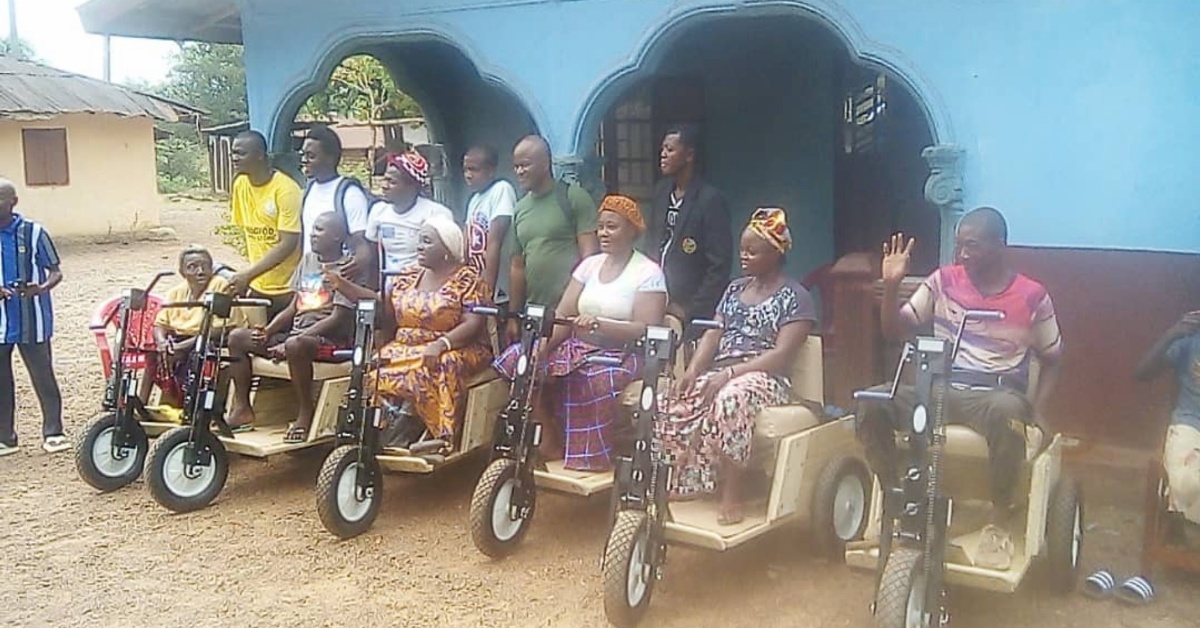Residents with mobility challenges in Pujehun have received renewed hope as six individuals were provided with specially trained service animals during a transformative initiative on January 28, 2025.
The project, spearheaded by Mobility SALONE alongside global nonprofit Mobility Worldwide and the Welfare Society for the Disabled (WESOFOD-SL), marks a significant stride toward fostering independence and dignity for Sierra Leone’s disability community.
The mobility pets, trained to assist with daily tasks and provide companionship, were distributed at an emotional ceremony attended by advocates, community leaders, and beneficiaries. The animals are designed to help users navigate uneven terrain, access public spaces, and mitigate the social isolation often faced by persons with disabilities.
“These animals are more than aids—they’re partners in reclaiming freedom,” declared Lamie Mansaray, Mobility SALONE’s Program Director, during the handover. He urged recipients to prioritize the care of their new companions, noting that the pets represent both a financial investment and a lifelong commitment to accessibility.
Mohamed Sillah, WESOFOD’s Pujehun Coordinator, hailed the collaboration as a “milestone” for disability rights in rural Sierra Leone. “For too long, many in our community have been confined to their homes,” he stated. “This initiative tears down barriers, literally and figuratively.”
The program has sparked widespread optimism, with beneficiaries like Hassan Kamara describing the mobility pets as “life-altering.” Kamara, who previously relied on family members for basic errands, recounted his first unassisted trip to a local market. “I felt seen, capable—finally part of the world around me,” he shared, his voice trembling with emotion.
Amie Kemokai, Chairperson of the Sierra Leone Union on Disability Issues (SLUDI), emphasized the broader implications of the project. “True inclusion requires innovation,” she asserted. “These animals are a testament to what’s possible when compassion meets action.”
While the initiative has been celebrated, advocates stress that systemic challenges remain. Limited infrastructure, societal stigma, and funding gaps continue to hinder progress. WESOFOD officials have called for expanded partnerships to replicate the program nationwide, urging policymakers to prioritize disability-inclusive budgeting.











